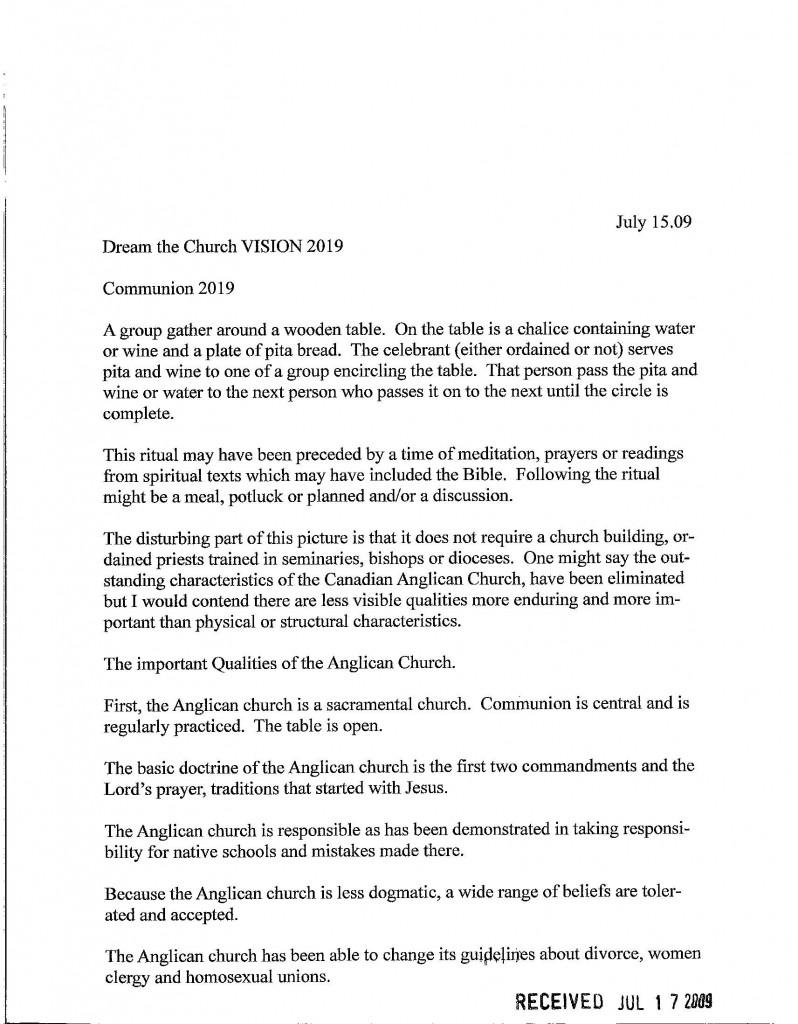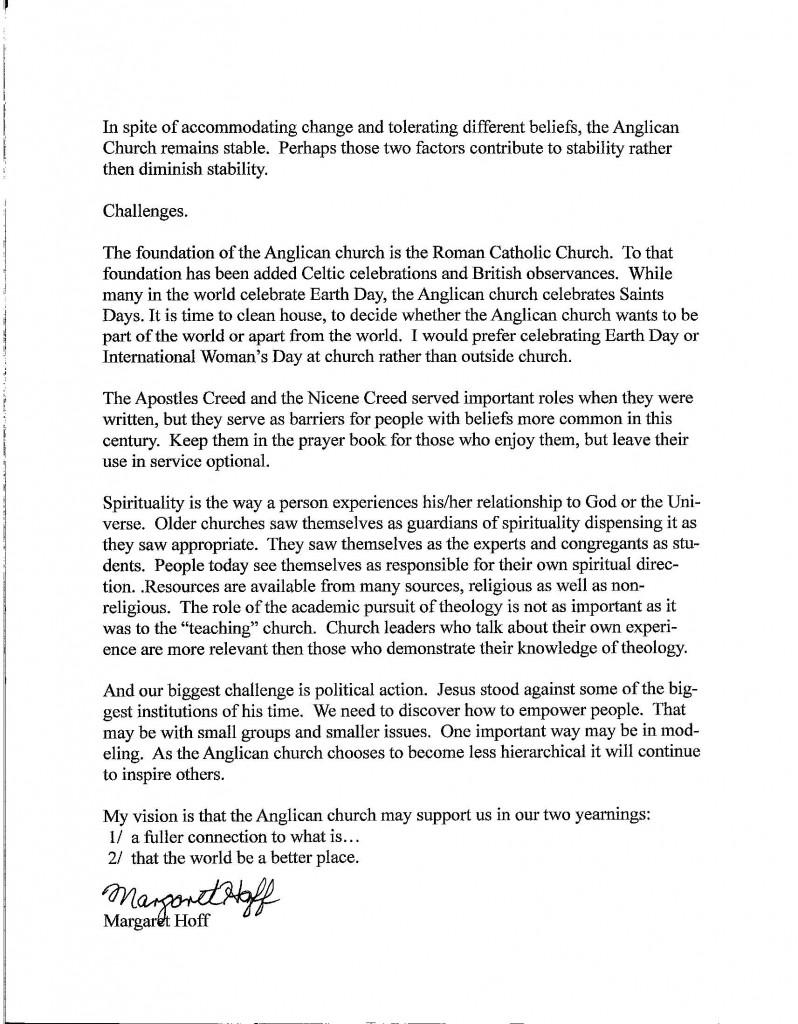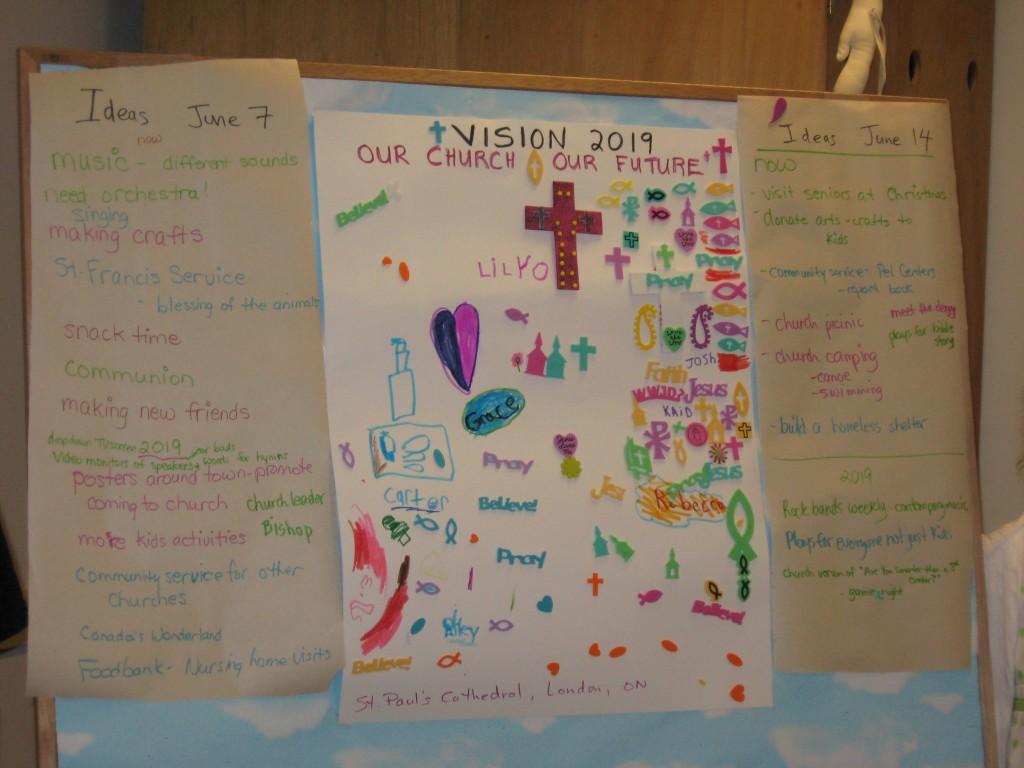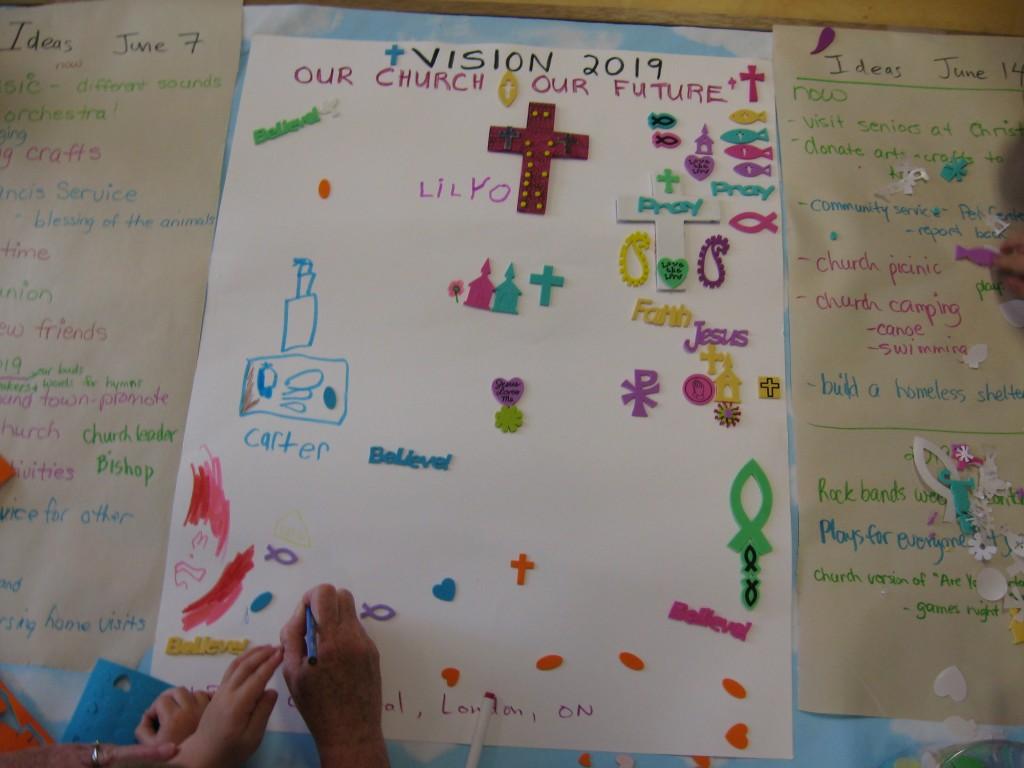Vision 2019
In 2019 we find a church that is not anxious about protecting its ‘religious turf’ but united with Anglicans and other Christians seeking to know & practice the love of God in the world.
The discussion at St. Marks centered around the Five Marks of Mission
To proclaim the good news of the Kingdom:
Now:
- based on a traditional model of church building, priest & paid staff, lay ministering congregation with various levels of engagement/commitment
Proclamation happens through many programs related to:
- traditional BCP & contemporary worship utilizing multimedia technology
- pastoral care by the lay ministers, deacon, and the priest
- Christian education utilizing current curriculums available
- community building / fellowship events
- outreach in the wider community.
2019
- Lay ministers regularly reflect upon and update church programs as needed. Church members have found language and processes to that easily expresses differences in opinion and find resolutions without alienating others.
- The arts are prominent in our church programs. The use of story telling, live music, drama, crafters, textiles & symbols in worship and community life are all flourishing.
- 2019 finds us excited and hopeful in the spaces where we worship. We have worked with other deanery parishes to make tough decisions as to how to maintain and protect the heritage of our church buildings. The process has renewed us.
To teach, baptize & nurture new believers:
Now:
- Programs use current curriculums for Sunday school, baptism, first communion, confirmation, marriage prep.
- We are adjusting to our cultural context which is viewed as a barrier to church involvement:
- We are one of many religions & Christians no longer attract parishioners by ‘divine right’
- Busy families are trying to maintain two careers; children attend daycare all week
- Family time falls on Sunday morning; worship is not a priority
- Higher value placed on embracing all religions and creeds
- Rampant consumerism, Sports activities, computer games,
- Church alienation: Past abuses, residential schools, past white male model
2019
- Faith language that illuminates Christian fundamental beliefs (without being fundamentalist) is understood and commonly used.
- Other religions & faith experiences are valued
- Christian identity & unity has ‘good self esteem’ in relation to other secular, spiritual and religious belief systems. The well adjusted Christian enhances the human spiritual journey and understanding/ love of God.
- New parents with small children are encouraged through new culturally relevant programs and ways of connecting with them, using the web and other current technology
To respond to human need through loving service:
Now:
- Priest, deacon and some lay ministers visit those in need.
- Caring is based on relationships formed through working together on various projects in the past and on a volunteer work ethic.
2019:
- The diaconate is common and flourishing, providing relationship & community building activities & education needed to engage lay ministry.
- We focus on the strengths & needs of the local neighbourhood while thinking globally
- We are prepared to minister to our large older population of seniors in the church with volunteers to provide transportation & other practical services if needed.
To seek to transform unjust structures of society.
Now
- Our local church provides important ‘band aids’ to a serious societal problems
- i.e. Food bank, Daily bread meals, Christmas shoe boxes, Hunger Fund, Food Vouchers
2019:
- Identify what are unjust structures and where the responsibility lies to help
- Lobby appropriate groups as a congregation & national church
- Recognize that unless our youth are helped to understand issues there will be no changes in future generations
- Try to incorporate values through the peer relationships
To strive to safeguard the integrity of creation and sustain and renew the life of the earth.
Now:
- Recycling: Paper, cans, plastic, composting coffee grounds, merchandise for bazaars
- Reducing: Low flow toilets, cutting electricity consumption with low wattage bulbs , high efficiency heating and cooling, low wattage appliances
2019
- Go Green; stay engaged with the process
- Be advocates for cleaner energy solar & wind & less use of plastics & foam
- Drought resistant gardens,
- Support local products; aim for 100 mile radius for food products







